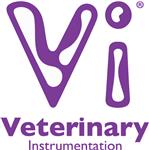
Key Information
CPD Hours: 16 hours (8 hours for the recorded webinars and 8 hours for the practical day)
Course Length: See above
Course Format: Practical sessions using live dogs and cadaver material and recorded webinars to be viewed before the onsite course
Enrol Now
Alternatively you can download and email using our Registration Form
Course Information
- Thoracic trauma: Stabilisation of dyspnoeic patient, point of care ultrasound (POCUS), thoracocentesis and thoracostomy tube placement, evaluation of thoracic radiographs, management of thoracic wall and diaphragmatic injury
- Abdominal trauma: Stabilisation of haemoabdomen and uroabdomen, POCUS, abdominocentesis and abdominal drain placement, evaluation of abdominal radiographs and retrograde urethrocystography, management of body wall and urinary tract injury
- Musculoskeletal trauma: Accurate patient assessment, acquisition and evaluation of orthopaedic radiographs, pre-surgical management of open fractures, reducing luxations, open wound management
Does the trauma patient quicken your pulse? Is your management of orthopaedic injury disjointed? Want to learn how to POCUS your efforts most effectively?
Trauma patients are frequently encountered in general practice, with the complex and often multifaceted nature of injury presenting challenges.
The ‘golden hour’ of trauma management is key – this course will help you to seize the opportunity to maximise patient outcomes. Benefit from multi-disciplinary insights from the only level one trauma centre outside of North America. Enhance your patient assessment, diagnostic techniques and clinical interventions with guidance from clinicians in emergency and critical care, diagnostic imaging, orthopaedic and soft tissue surgery. This collaborative course of online lectures followed by an all-day practical will allow you to apply a holistic approach to the trauma patient.
This course consists of recorded webinars and a day of practical sessions. Please note: The online lectures are a pre-requisite for attending the onsite day (these will be available to view approximately 4 weeks prior to the practical day). These lectures allow you to learn at your own pace and can be listened to at a convenient time. This allows delegates to have more time once onsite for practical, hands-on teaching sessions. On the practical day, the tutors will be happy to answer questions relating to the online lectures, however to get through everything planned for the practical day, they will not be able to cover the content in the same level of detail as the online lectures. It is therefore imperative that all lectures are viewed in advance of attending.
Why do this course?
This course will improve your confidence in managing complex trauma cases. It will allow you to advance your skills in multiple disciplines required of trauma patients to ultimately maximise patient outcomes. This course is tailored to provide a holistic and multidisciplinary perspective on commonly encountered traumatic injuries, with a focus on real clinical cases. Delegates will develop their ability to confidently assess, stabilise and manage trauma patients in the acute setting.
Laura Cole, MA VetMB MVetMed CertVPS CertAVP(ECC) DipACVECC DipECVECC MRCVS
Lecturer in Veterinary Emergency and Critical Care Medicine
The Royal Veterinary College
Anna Frykfors von Hekkel, BVetMed(Hons) PGDipVCP MVetMed PGCertVetEd DipECVS FHEA MRCVS
Lecturer in Small Animal Surgery
The Royal Veterinary College
Thom Watton, BSc BVetMed MVetMed PGDipVCP DipECVDI MRCVS
RCVS and EBVS® European Specialist in Veterinary Diagnostic Imaging
Consultant Radiologist



